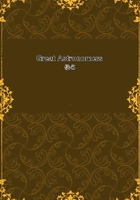
第58章 WILLIAM HERSCHEL.(4)
It is sometimes said that discoveries are made by accident, and, no doubt, to a certain extent, but only, I fancy to a very small extent, this statement may be true. It is, at all events, certain that such lucky accidents do not often fall to the lot of people unless those people have done much to deserve them. This was certainly the case with Herschel. He appears to have formed a project for making a close examination of all the stars above a certain magnitude. Perhaps he intended to confine this research to a limited region of the sky, but, at all events, he seems to have undertaken the work energetically and systematically. Star after star was brought to the centre of the field of view of his telescope, and after being carefully examined was then displaced, while another star was brought forward to be submitted to the same process. In the great majority of cases such observations yield really nothing of importance; no doubt even the smallest star in the heavens would, if we could find out all about it, reveal far more than all the astronomers that were ever on the earth have even conjectured. What we actually learn about the great majority of stars is only information of the most meagre description. We see that the star is a little point of light, and we see nothing more.
In the great review which Herschel undertook he doubtless examined hundreds, or perhaps thousands of stars, allowing them to pass away without note or comment. But on an ever-memorable night in March, 1782, it happened that he was pursuing his task among the stars in the Constellation of Gemini. Doubtless, on that night, as on so many other nights, one star after another was looked at only to be dismissed, as not requiring further attention. On the evening in question, however, one star was noticed which, to Herschel's acute vision seemed different from the stars which in so many thousands are strewn over the sky. A star properly so called appears merely as a little point of light, which no increase of magnifying power will ever exhibit with a true disc. But there was something in the star-like object which Herschel saw that immediately arrested his attention and made him apply to it a higher magnifying power. This at once disclosed the fact that the object possessed a disc, that is, a definite, measurable size, and that it was thus totally different from any one of the hundreds and thousands of stars which exist elsewhere in space. Indeed, we may say at once that this little object was not a star at all; it was a planet. That such was its true nature was confirmed, after a little further observation, by perceiving that the body was shifting its place on the heavens relatively to the stars. The organist at the Octagon Chapel at Bath had, therefore, discovered a new planet with his home-made telescope.
I can imagine some one will say, "Oh, there was nothing so wonderful in that; are not planets always being discovered? Has not M. Palisa, for instance, discovered about eighty of such objects, and are there not hundreds of them known nowadays?" This is, to a certain extent, quite true. I have not the least desire to detract from the credit of those industrious and sharp-sighted astronomers who have in modern days brought so many of these little objects within our cognisance. Ithink, however, it must be admitted that such discoveries have a totally different importance in the history of science from that which belongs to the peerless achievement of Herschel. In the first place, it must be observed that the minor planets now brought to light are so minute that if a score of them were rolled to together into one lump it would not be one-thousandth part of the size of the grand planet discovered by Herschel. This is, nevertheless, not the most important point. What marks Herschel's achievement as one of the great epochs in the history of astronomy is the fact that the detection of Uranus was the very first recorded occasion of the discovery of any planet whatever.